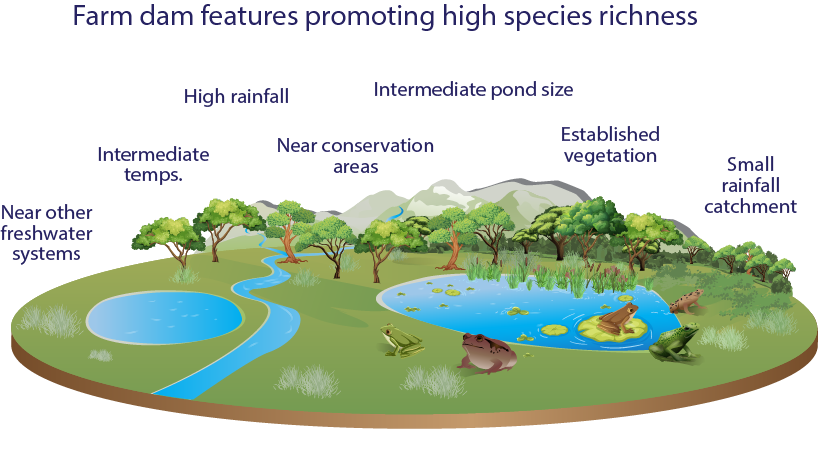PROMOTING BIODIVERSITY
Amphibians are disappearing fast, and their loss is part of a global problem affecting freshwater life. Recent studies show that man-made water bodies like farm dams can help create habitats for these creatures. Farm dams are vital to ensuring water supply for crops and livestock, and they can also provide a safe haven for amphibians during drought. Our research explores how managing farm dams can benefit both farm productivity and native wildlife. We look to develop strategies that meet conservation outcomes at scale using farm dams, such as establishing “biodiversity credit” policies to reward farmers who invest in improving the condition of their land.
Frog species are among the most threatened taxa on earth. We asked:
What characteristics promote higher frog species richness at farm dams?
We collaborated with the Australian Museum and Melbourne Water to use a continental-scale data set of 104,013 audio recordings from two citizen-science programs (FrogID and Frog Census). We identified and located 107 species of frogs near 8,800 Australian farm dams.
We found that the highest values of frog species richness were at old (>20 years) farm dams of intermediate size (0.1 ha in surface area), with smaller rainfall catchments (<10 ha), and situated near other freshwater systems or conservation sites. Our results can be used to design “greener” farm dams and prioritise existing dams for conservation and restoration. Our work identifies a large potential for win-win outcomes in agricultural productivity and conservation.
Read more: Malerba, Martino E., et al. (2023) Conserving nature’s chorus: Local and landscape features promoting frog species richness in farm dams. Biological Conservation 286: 110270.

Contact
Dr Martino Malerba
